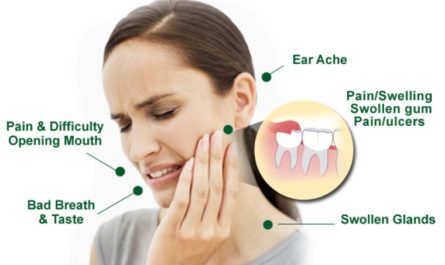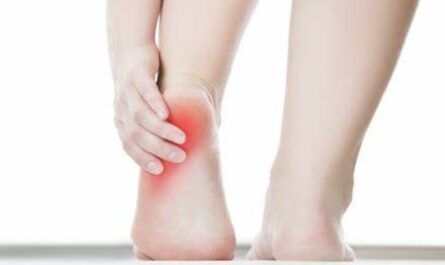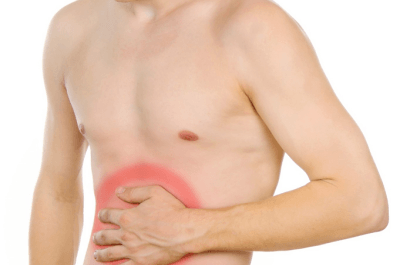Have you ever experienced an unexplained numbness or tingling sensation in your face? If so, you’re not alone. This mysterious symptom can be quite alarming, but it’s not uncommon. Numbness and tingling in the face can be caused by various factors, ranging from something as simple as a poor posture to more serious medical conditions.
It’s important to pay attention to these symptoms and seek medical attention if they persist or are accompanied by other concerning symptoms. In this article, we’ll discuss 13 common causes of numbness and tingling in the face.
What are numbness and tingling sensation in the face?
The tingling sensation, or “pins and needles,” is also known as paresthesia. The tingling sensation can manifest in different ways. It can affect the entire face or just a small area.
This condition is usually caused by nerve damage or irritation but can also be a symptom of a medical condition. It can be due to damaged, injured, or diseased sensory nerves. Or it can be caused by a reaction from long exposure to cold temperatures or neuropathy.
These conditions are usually not life-threatening and do not need emergency medical care. However, they will make you uncomfortable, and sometimes, they may also be a symptom of other serious diseases such as multiple sclerosis and stroke.

Symptoms of Numbness and Tingling in the face
1. Loss of Sensation
This is a common symptom of numbness and tingling in the face. It is a sign of nerve damage or irritation and can cause a feeling of complete lack of sensation in the affected area. This can include the face, lips, chin, or other areas.
2. Pins and Needles Feeling
This is a common symptom of facial tingling and numbness. It is caused by irritation of the nerves in the face, causing a sensation of pins and needles or prickling in the skin. This sensation can be mild or intense and is usually accompanied by a loss of sensation.
3. Prickling Sensation
This is another common symptom of facial numbness and tingling caused by nerve irritation. It is usually accompanied by a feeling of prickling or burning in the affected area. This sensation can be mild or intense and can be felt in the affected areas.
4. Burning Sensation
This is a common symptom of facial numbness and tingling and is a sign of nerve irritation. It is usually accompanied by a sensation of burning or stinging in the affected area. This sensation can be mild or intense and can range from a mild burning feeling to an intense sensation of heat.
5. Facial Muscle Weakness
This is a common symptom of facial numbness and tingling and is a sign of nerve damage. It can cause weakness or paralysis of the facial muscles, which can cause difficulty speaking, chewing, and swallowing.
6. Headache
This is a common symptom of facial numbness and tingling and is a sign of nerve irritation. It can cause a dull, throbbing headache in the affected areas and can be mild or intense. This symptom can also be accompanied by other symptoms such as nausea, vomiting, or fatigue.
12 Common Causes of Tingling or Numbness on Face
The common causes of numbness and tingling in the face are:
1. Stress and Anxiety
When the body is constantly stressed, and anxiety occurs inside the mind, it can lead to reactions that can affect the face in many ways. A burning or tingling sensation in the face is one of the anxiety symptoms and may worsen because facial tingling is often associated with multiple sclerosis.
This scares more people and makes anxiety severe. However, numerous sclerosis is rare. The best way to know the difference is by speaking to a doctor.
In addition to facial tingling, other anxiety symptoms include a reddened face, bleeding lips due to biting, and dilation of the pupils.
How to get rid of the numbness and tingling anxiety symptom?
- Walking, swimming, or yoga can help reduce stress and anxiety effectively.
- If you suffer from an anxiety disorder, medication such as Xanax can help decrease the tingling and numbness feeling.
- You can take a deep breath for 10-20 minutes to calm yourself down, which can help you recover from stress.
- You can also consult an experienced anxiety disorder therapist to relieve an anxiety disorder. This is an effective method to eliminate the numbness and tingling anxiety symptoms.
2. Nerve Problems
Another cause of facial tingling is an injury to the trigeminal nerve. Trigeminal neuralgia is a condition that affects the nerves in the face, which can be painful.
In some cases, the tingling sensation or shock can be intense. The pain can also be triggered when brushing your teeth, and some people go to dentists believing it is an abscessed tooth.
Other symptoms of trigeminal neuralgia include:
- Short periods of stabbing pain.
- Pain when applying makeup.
- Pain when washing the face or shaving.
- Wind may also trigger the pain, which lasts for seconds up to a few minutes.
- For women, periods may occur even when you are not yet due.
This condition is caused by a blood vessel pressing on the nerve and leads to damage. Diseases like multiple sclerosis and tumor can also damage the nerve. Trigeminal neuralgia can also occur if the arteries are tangled and press the nerve.
Treatment for Tingling or Numbness from Nerve Problems
Accidents, surgery, or stroke can also lead to this condition if you have the symptoms such as difficulty walking, slurred words, or paralysis. You should see your doctor immediately.
They may prescribe medicines to prevent the nerves from getting irritated, which are called anticonvulsants. If the medication does not help, surgery may be required.
3. Cerebrovascular Accident
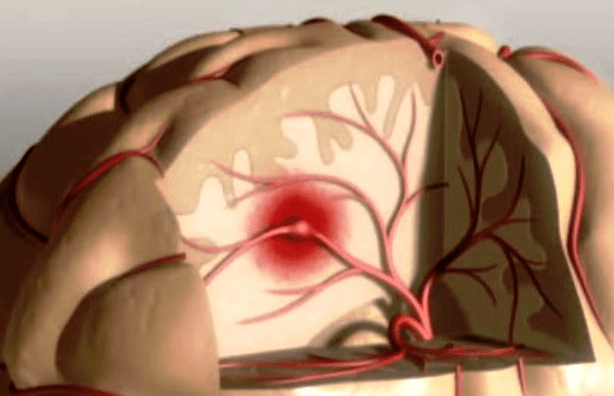
The tingling in the face can also be a symptom of a cerebrovascular accident. CVA is the medical term for a stroke. This happens when the blood vessel is ruptured or blocked, stopping blood circulation to a part of the brain.
The symptoms of stroke may differ from one person to another. Even if the symptoms are not severe, they can develop over time. The signs of a stroke or cerebrovascular accident are:
- Numbness or paralysis in the face, arm, or leg.
- Difficulty in walking.
- Blurred or darkened vision.
- A sudden headache, vomiting, nausea
- Loss of balance and coordination
These symptoms are vital signs, and you should be alert. If you suspect you or someone you know has stroke symptoms, visit a doctor immediately to receive proper treatment. Leaving the condition untreated will permanently damage certain parts of the brain.
Your doctor will have to perform a physical examination and check the sound of the blood vessels. They may also have to perform tests such as angiogram, blood test, electrocardiogram, and magnetic resonance imaging.
4. Exposure to Extreme Temperatures
Another cause of facial tingling is exposure to extreme cold or hot temperatures. If your face is exposed to cold air, this leads to temporary numbness or tingling feeling. People more sensitive to cold can experience this when exposed to extremely cold temperatures.
5. Multiple Sclerosis
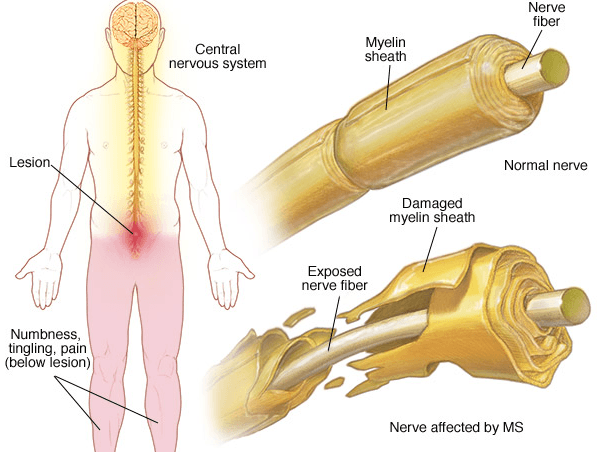
Another cause of tingling in the face is Multiple sclerosis. It is a condition that affects the spinal cord and the brain that may lead to disability.
In MS, your immune system attacks the myelin (protective sheath that covers the nerve fibers), which leads to problems in the communication between your body and the brain. This may lead to the deterioration of the nerves and become damage permanently.
The early symptoms of MS include tingling, numbness, blurred vision, and weakness. Other signs of multiple sclerosis are confusion, stiffness, and urinary issues. The symptoms of multiple sclerosis may vary depending on the area of the damaged nerves. Some people who have severe multiple sclerosis may not be able to walk alone.
- Numbness or weakness of limbs, trunk, or legs.
- It prolonged double vision.
- Partial or complete loss of sight.
- Tingling sensation or pain in areas of the body.
- Dizziness and fatigue
- Unclear speech
- Electric shock sensation when moving the neck
- Bladder and bowel problems
Your doctor may recommend blood tests, lumbar puncture, MRI, and Evoked potential tests according to your medical history and examination.
6. Exposure to chemicals

If you are always exposed to harmful chemicals in your job or the harsh cleaning products you use at home, you will likely experience the symptoms.
- Dimethylhydrazine is a chemical used in rocket and jet fuel, photography, plant growth agent, and many other purposes. Facial numbness can occur when exposed to this chemical or ingested.
- Sodium Monofluoracetate is a chemical for controlling mammal pests in crops. Exposures or ingestion of this chemical can lead to many symptoms and may depend on the amount of chemical absorbed. This can also lead to facial paresthesia.
- DDD is a chemical used as a pesticide. When absorbed through the skin, it can lead to facial paresthesia.
- DDT is also another chemical used for controlling insect pests on crops. A person may experience facial paresthesia when the chemical is absorbed through the skin.
7. Brain tumor
If the brain tumor presses on nerves related to the facial area, tingling in the face may occur. According to research, the cause of brain tumors is still unknown, but some risk factors exist.
Depending on the type and location of the tumor, other symptoms of brain tumors can include headache, nausea, vomiting, hearing and vision problems, seizures, balance and coordination issues, difficulty speaking, memory problems, and changes in personality or mood.
8. Shingles
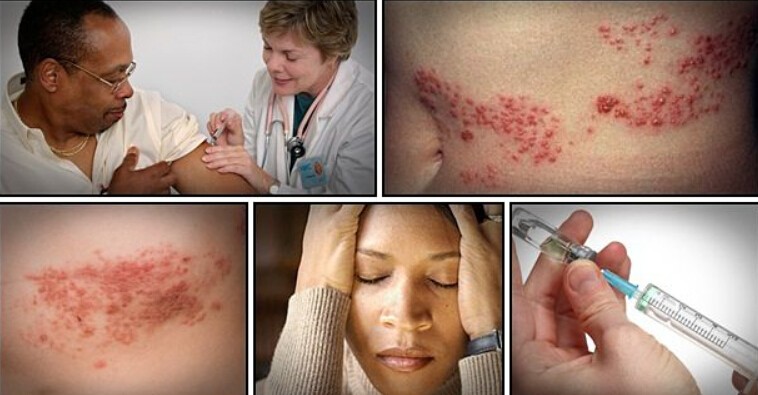
Shingles, also called herpes zoster, is a skin rash caused by the varicella-zoster virus. The symptoms appear in a small part on one side of the body or face.
If you have had chickenpox before, the virus in the body becomes dormant. Shingles occur when the virus wakes again due to stress, aging, or disease. Some medicines can trigger the virus and lead to shingle rashes.
Singles are not contagious, but the virus can spread to someone who has not had chickenpox or hasn’t gotten the vaccine.
Aside from rashes and tingling in the face, other symptoms include headaches, flu, light sensitivity, and pain in some areas. Your rashes may also become blisters, which will take at least two weeks to heal.
If you suspect you or someone you know has shingles, visit a doctor immediately for early treatment.
9. Vitamin deficiencies
Vitamin deficiencies can also cause a tingling sensation in the face. A lack of certain vitamins, such as Vitamin B12, can cause numbness and tingling in the extremities, including the face.
If you suspect a vitamin deficiency, you must talk to your doctor to get tested and determine which vitamins you may lack.
10. Head injury
A head injury can cause a tingling sensation in the face. This is known as facial paresthesia, a common symptom of head trauma.
Other symptoms of head trauma include headaches, dizziness, blurred vision, nausea, and confusion. If you have experienced a head injury and are experiencing any of these symptoms, it is important to seek medical attention immediately.
11. Medication
Some medications can cause a tingling sensation in the face. This can be a side effect of medications, such as those used to treat high blood pressure, depression, and anxiety.
Before you take your pill, make sure to read the prescription carefully and check the side effects. You can ask your doctor for alternatives if you are experiencing a tingling sensation.
12. A migraine
Migraine headaches can cause various symptoms, including tingling sensations in the face. The area of the face where the tingling sensation is felt may vary from person to person, but it is usually on one side of the face or the other.
Other symptoms of migraine headaches may include nausea, vomiting, sensitivity to light and sound, and throbbing or pulsing pain on one side of the head.
Tips for Getting Rid of the Numbness and Tingling Sensation
Below are some tips to help you relieve the symptoms effectively.
- Avoid foods rich in fat, sugar, and salt; eat more vegetables and fruits.
- Consume more vitamins B12, E, and C; this can help you relieve symptoms effectively.
- Avoid stress and anxiety; try to communicate with your family and friends.
- If you suffer from severe conditions, consult your physician for treatment as soon as possible.
- Make sure you’re practicing good posture. Sitting or standing in an awkward position for too long can put pressure on your nerves and lead to numbness and tingling in the face.
- Try to sit upright with your back straight and your shoulders relaxed. Avoid hunching over your computer or phone, and take regular breaks to stretch and move around.
- Do some exercises like neck rolls or shoulder shrugs every day to help keep your neck muscles strong and flexible.
- Make sure you’re getting enough sleep each night. Poor sleep can lead to fatigue, which can put additional strain on your neck muscles and lead to numbness and tingling in the face.
- Try to get at least seven hours of sleep each night, and ensure you’re sleeping comfortably with your head and neck supported.
When to see your Doctor
You should see your doctor immediately when you have a tingling face, along with the symptoms below.
- Dizziness or confusion
- Paralysis in the face
- Serious, persistent headache
- Vision or speaking problems
Final words:
By following these tips in the article, you can reduce your chances of experiencing numbness and tingling in the face. If you still have problems, it’s best to seek medical advice from a doctor or specialist as soon as possible.


